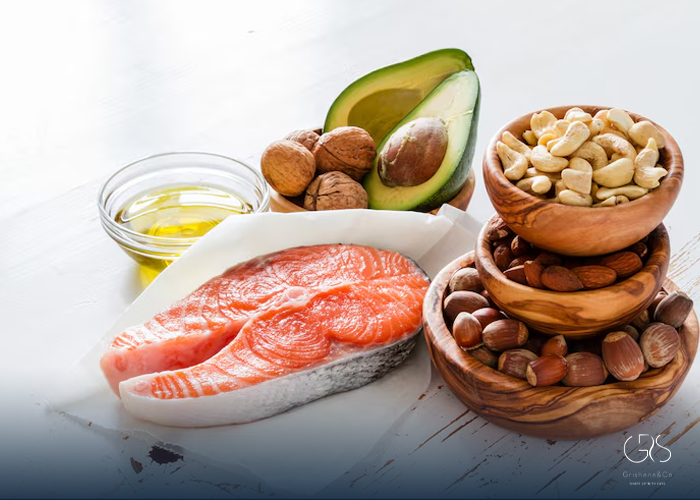In today’s beauty-obsessed society, where flawless skin is often considered the ultimate goal, individuals are constantly seeking to improve their skin health through nutrition. A growing area of interest revolves around the influence of diet, specifically the consumption of Omega-3 fatty acids and adherence to the Mediterranean diet, on skin health. Studies suggest that our dietary choices significantly impact our skin’s condition, and incorporating Omega-3s and following a Mediterranean-style diet may be crucial to achieving clearer, healthier skin.
Why Diet and Omega-3 Consumption Can Affect Your Skin:
The link between diet and skin health is not a new concept. Our skin is a reflection of our overall health, and certain nutrients play a significant role in maintaining its health and vitality. Omega-3 fatty acids, found in fatty fish like salmon and mackerel, have been shown to possess anti-inflammatory properties that can help reduce skin inflammation and acne. Studies have also indicated that Omega-3s can help maintain the skin’s natural oil barrier, improving hydration and reducing the risk of dryness and irritation.(To learn more about Dry skin routine please refer to this article)
(Read about inflammatory acne overview.)

Using Food to Take Care of Your Skin:
One of the key principles of the Mediterranean diet is the emphasis on whole, nutrient-dense foods such as fruits, vegetables, legumes, nuts, and olive oil. These foods are rich in antioxidants, vitamins, and minerals that can promote skin health and combat oxidative stress, a key factor in skin aging and inflammatory skin conditions. By incorporating these foods into your diet, you can provide your skin with the essential nutrients it needs to thrive.
(I want to suggest that you go read my article on the Mediterranean Diet Guide)

Steps for Improving Acne and Overall Health:
In particular, the following steps could be helpful in improving acne and overall health:
- Incorporate Omega-3 rich foods into your diet, such as fatty fish, chia seeds, and walnuts.(I suggest reading about the health benefits of walnuts.)
- Increase your consumption of fruits and vegetables, particularly those rich in antioxidants like berries, leafy greens, and tomatoes.
- Use olive oil as your primary source of fat for cooking and dressing salads.
- Limit processed foods, sugar, and excessive dairy consumption, which can exacerbate skin inflammation.
Conclusion:
Nutrition plays a vital role in skin health, as it directly impacts the condition of our skin. By prioritizing nutrient-dense foods rich in Omega-3s and those commonly found in the Mediterranean diet, we have the potential to enhance our skin from the inside out. While skincare products are beneficial, genuine skin health originates from nourishing our bodies with the appropriate foods. Embracing a nutritional approach that incorporates Omega-3s and follows the principles of the Mediterranean diet could be the ultimate solution for achieving clearer, healthier skin.
Sources
- Harvard Health Publishing, Omega-3 fatty acids for mood disorders
- Integris Health, The Role of Nutrition in Skin Health
- PubMed Central, Discovering the link between nutrition and skin aging










